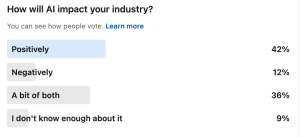How to Get a Pay Rise
Earning a higher salary is one of the most common career goals. In the end, a pay raise not only recognises your hard work and dedication but also improves your financial well-being. The current cost of living crisis has seen many families struggle to make ends meet. So, financial well-being is a massive contributing factor to our overall health. If you’ve been in your role for a while now and think you deserve a pay rise, then you’ve come to the right place. Pay raises aren’t always easy to get, and they usually require thought and planning. In this blog, we’ll give you a step-by-step process to give yourself a great chance of landing a pay rise.
Your 7 Step Plan to Landing a Pay Rise
1. Self Evaluation
Before you consider asking for a raise, evaluate your performance and contributions to your company. Determine the reasons why you deserve a pay rise. Think about the following questions:
- Have you consistently met or exceeded your performance objectives?
- Have you taken on additional responsibilities or contributed significantly to the company’s success?
- Have you gained any new skills or certifications that will increase your value to the organisation?
2. Research The Market
Understanding your market value is critical for making a compelling case for a pay rise. Investigate what others in your industry and region are earning in similar roles. The average range for your role could have changed since you started. Salary information is available on a variety of websites such as GlassDoor. This information can be useful when discussing your remuneration with your employer.
3. Pick the Appropriate Time
When it comes to asking for a raise, timing is everything. Don’t rush into this conversation; instead, wait for the right time. Here are some scenarios in which salary negotiations might be appropriate:
- Annual Performance Review: Many businesses conduct annual performance reviews, during which compensation is frequently discussed.
- Following a Noteworthy Achievement: If you’ve recently completed a large project or reached a major milestone, use it as justification to request a raise.
- Company Success: If your company performs well, it may be more inclined to reward its employees.
4. Prepare Your Case!
Be organised when approaching your boss for a raise. Make a compelling case for why you deserve one. Your case should include your achievements and contributions to the company during your time there. A comparison of what professionals in the same job role as you are earning and any other information that will support your case. Practising your pay raise pitch with a family member or friend is a good idea. This will help you in gaining confidence and communicate your points clearly and persuasively. Prepare to answer any questions or objections that your employer may have.
5. Anticipate Some Negotiation
You may not be able to get exactly what you want out of your employer, but he or she may be willing to make a compromise to meet your needs. It is important to remember that other benefits, such as extra holiday days, flexible work schedules, and performance bonuses, can also be negotiated as part of the agreement. Be open-minded and try not to come across as demanding, it’s about reaching a mutual and fair agreement.
6. Follow-Up Appropriately
So you’ve had your meeting and are waiting for a response. Allow enough time for your boss or manager to respond to your requests. Most likely, you will not receive an immediate response because they will need to consider many factors and possibly move your request up the ranks. Having said that, don’t wait so long that your request becomes buried under the inevitable workload that your manager faces on a daily basis.
7. Leave Things on a Positive Note- Either Way
One scenario is that you get exactly what you want. Hurray! However, be open to the possibility that you may not. Perhaps you get something a little different, perhaps it’s something your boss says will be revisited at a later date. No matter what it is, end things on a positive note.
If your request was denied, there are also some smart follow-up questions you can ask such as;
- What can I do to improve my chances of getting a raise in the future?
- Are there opportunities for career advancement I can explore?
- Can we discuss a timeline where this can be revisited?
These questions not only keep the conversation open but will also show your enthusiasm to stay with the company.
So, what do you do if you aren’t getting the pay raise you deserve? It might be time to explore your options. Get in touch with an expert recruiter like RecrutimentPlus to find out more about the market, opportunities in your industry and more.
How to Get Started
Step One: Find out more information about RecruitmentPlus
Step Two: Contact our team of expert recruiters to discuss your needs
Step Three: Search our Live Jobs
Step Four: Upload your CV












